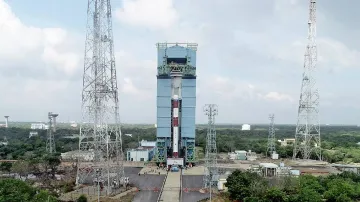Exciting experiments are on the way with ISRO's upcoming mission, known as POEM-4, which will be part of the PSLV rocket that stays in space after launching a satellite. One of the main goals of this mission, set to launch at the end of the year, is to place two satellites, called 'Chaser' and 'Target', into orbit. These satellites will help test critical technologies for future space docking, which is essential for building India’s own space station.
The POEM-4 module will host 24 different experiments, with contributions from both ISRO labs and private universities. One notable experiment will involve growing cowpea seeds in space to see how they germinate and develop in a special, controlled environment. This project is called the Compact Research Module for Orbital Plant Studies (CROPS) and is being developed by the Vikram Sarabhai Space Centre.
Another interesting experiment comes from Amity University in Mumbai, which will focus on how spinach grows in the unique conditions of microgravity. This study will take place both in space and on the ground, helping us understand how plants sense gravity and light.
In addition, a new robotic arm, created by a team at VSSC, will attempt to capture space debris using advanced technology that helps it predict and track the movement of objects. This system could be essential for cleaning up space and potentially refueling spacecraft in the future.
A start-up called Manastu Space will test a new green propulsion system called Vyom-2U, which uses a safer fuel made from hydrogen peroxide, aimed at replacing the less safe propellants currently in use.
Lastly, a project named Varuna, developed by Piersight Space-Ahmedabad, will demonstrate a type of radar system in a small satellite format. This is a step toward launching a group of satellites that can monitor activities at sea, providing vital information about human and industrial actions in real-time.
Overall, this mission is an important leap forward for India’s space technology and research efforts!
ALSO READ: ISRO begins assembly for LVM3 Rocket, powering India's first human spaceflight
Inputs from PTI
